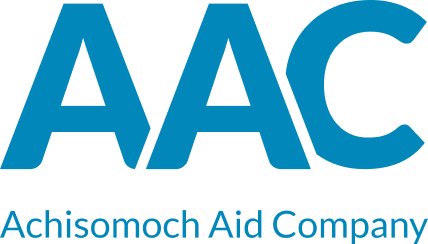news
Achisomoch Blog

An extract from Easy Giving (Part 1)
February 23 2021
In keeping with Achisomoch’s focus on making it easy for the Jewish public to give Tzedokoh, we thought it would be useful to present in our regular newsletters, a series of excerpts from a halachic sefer on Tzedokoh & Ma’aser Kesofim entitled “Easy Giving”, co-authored by one of our own trustees, Eli Katz, together with Emanuel Meyer. The sefer has approbations from Rav YM Greenberg, Rav SF Zimmerman and Rav Y Flieschman (Head of the Choshen Mishpot Kollel, Yerushalyim), and is available from seforim shops in NW London.
A Practical Guide to the Halochos of Communal Obligations, Mitzvas Tzedokoh and Ma’aser Kesofim
Introduction
Tzedokoh is a pre-eminent and fundamental mitzvoh, as seen in the Gemoroh (Bava Basra 9a) which states that it is equal to all the other 612 mitzvohs in the Torah. The various blessings and segulos guaranteed by the Gemoroh, medroshim and many other seforim, are unrivalled in their promises of both physical and spiritual improvement for someone who practices Tzedokoh correctly.
Hashem has decreed that the economic circumstances in England and many other countries are challenging, and if you look at our community in North-West London, you see many families struggling to pay their basic food and utility bills, more schools suffering from higher shortfalls and many communal institutions with rocky finances.
Our North-West London kehilloh is thriving and growing Boruch Hashem. However there is a growing feeling within our kehilloh that we need to deal with these pressing financial issues. As a kehilloh we do, of course, donate large amounts. However, are we giving the correctly calculated amounts towards the right people and institutions, as determined by the halachic guidelines laid down to us by the poskim over many generations?
We also need to understand our responsibility towards members of our own family who take precedence over local community members, who in turn take precedence over aniyei Yerusholayim and the wider Jewish world. Many local financial difficulties would be solved if we adhered to halachic guidelines to satisfy our obligations towards our own kehilloh and community before donating elsewhere.
Objectives
Our objectives in this series are threefold:
- To explain the guidelines and rules set down by chazal in a clear and concise fashion, to delve through the numerous seforim on the subject, clarify the variety of differing opinions and state the psak delivered by the rabbonim with whom we have discussed the issues.
- To generate enthusiasm for this unique and incredible mitzvoh, and to encourage everyone to calculate and monitor their charitable giving with the same dedication and hislahavus that they monitor their bank balances, share investments and property portfolios.
- To endeavour to encourage people to ensure that all aniyim are treated with respect, consideration and maybe even a smile. Try and imagine for one minute how you would feel if, chas vesholom, you would need to collect for your family’s desperate requirements.
This series elaborates and discusses the details pertaining to three halochos, namely the communal obligations of the individual (based on Shulchan Aruch, Choshen Mishpot 163), the mitzvoh of Tzedokoh (based on Shulchan Aruch, Yoreh De’ah 247-259) and also the minhag of ma’aser kesofim.
The order of precedence from a halachic perspective is:
- Communal obligations.
- Mitzvas Tzedokoh.
- Minhag of ma’aser kesofim.
Section A – Communal Obligations
Chapter 1 – The Communal Obligations of the individual
A. Sources and details.
1. The Shulchan Aruch rules (חושן משפט סימן קס״ג) that there is an obligation on every member of a city to pay their portion for the founding and upkeep of the essential communal infrastructure. This payment can be viewed as a community tax. The rationale for this monetary obligation is that every city dweller is viewed as being in an implicit partnership with the other city dwellers as regards all communal responsibilities.
2. This law is derived principally from the discussion of the laws of partnership, where the Mishnah states:
(‘כופין אותו לבנות לעיר חומה ודלתים ובריח (בבא בתרא ז’ ב
– We force [a town resident] to build for the town a wall, gates and a bolt, i.e., residents of a town can force another resident to pay his share of the upkeep of the town.
3. Even if, as is common today, the community has not organised itself to enforce a communal tax, nevertheless, each individual remains personally obligated to support the essential communal infrastructure.
4. The laws obligating a community to create and fully support its essential infrastructure have been elucidated across the ages and discussed widely by the poskim of our times1.
5. As a statement of the strength of this obligation the halochoh is that:
a. even a minority of the town members can enforce this obligation on the majority,
b. the necessary sums can be claimed in beis din and even in secular courts,
c. the obligation to contribute applies even to community members who are not making use of the institutions. For example, singles or parents with no children in school would also have to contribute to the upkeep of the school.
6. Clearly the minority can force the majority to pay only if the costs for the infrastructure are kept to the absolute minimum, and limited to that which is genuinely essential. Opening a new shul where the existing institutions suffice to provide for the requirements of the city, or expending excessive amounts on beautifying existing institutions, could not be considered a communal obligation.
Footnotes
1. שו”ת אגרות משה חלק א’, חושן משפט סימן מ’-מ”ב, יורה דעה סימן קמ”ט; שו”ת שבט הלוי חלק ו’ סימן קמ”ז
See in particular שו”ת ציץ אליעזר חלק ב׳ סימן כ״ב who discusses the formation of a tax system based on Jewish law.
To be continued…
This article was featured in the Purim 2021 newsletter. Click here to download the full newsletter.
